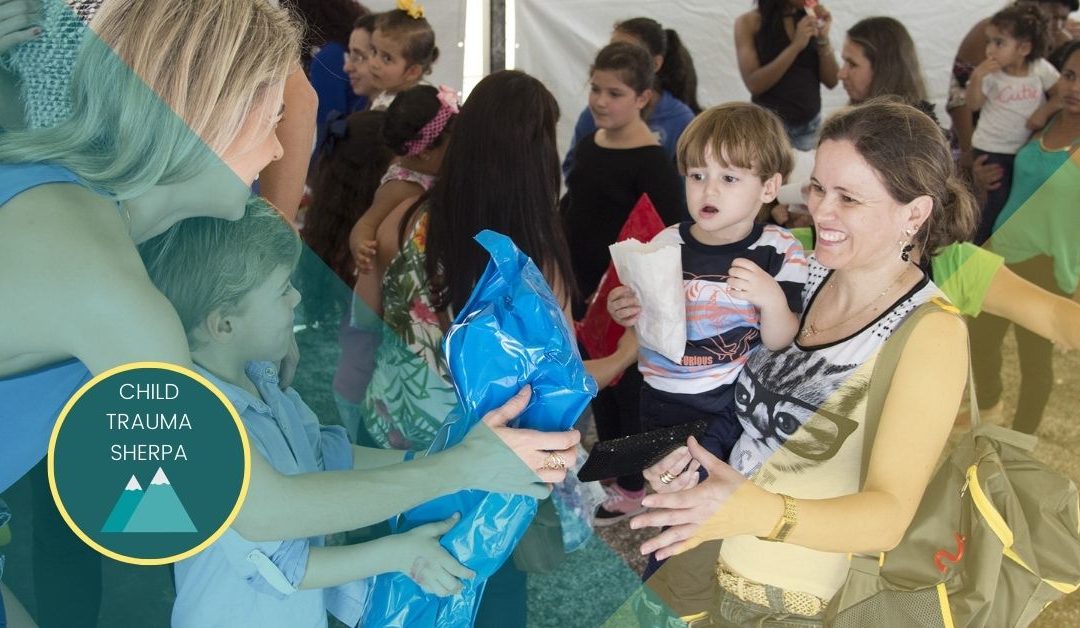What Friends and Family Need to Know about Trauma-Informed Care
For those who do not have adopted children with trauma, it can be hard for them to understand that traditional methods of parenting are unhelpful to your child with trauma. In fact, you’ve probably had discussions, or even arguments, with other members of your family about how to parent your child. Not only do these tense situations make it difficult for you, but it can further harm your child with trauma if they are exposed to these conversations.
Helping your child with trauma heal is a learning process for both you and other members of your family. It requires a different way of parenting in order to help your child heal. Since trauma-informed care is based on relationships, it is essential that everyone in your child’s life be on the same page when it comes to their care.
In this article, we will be taking a look at not only the importance of trauma-informed care, but how to help others understand it. If you don’t know how to begin a discussion with someone in your child’s life about trauma-informed care, having them read this article can be a good place to start!
What is Trauma-Informed Care?
Trauma-informed care is based on relationships. It also takes into account both the physical and mental effects trauma has on an individual and offers survivors the opportunity to build or rebuild connections and trust that were once fractured by abuse, neglect, and/or betrayal. More than that, it also gives children with trauma the space to make their own decisions and heal in their own time.
The Importance of Trauma-Informed Care
Trauma-informed care recognizes how trauma affects the brain. Prolonged exposure to trauma causes us to be in a perpetual state of fight or flight mode. This leads to hyperactivity in the lower areas of the brain, overriding the prefrontal cortex, which is in charge of rational choices and modulating emotional responses. This hyperactivity in the amygdala is what causes the unwanted behaviors in children with trauma.
Traditional parenting styles, however, are founded on the ability of a child to think rationally and modulate their emotions. In other words, traditional parenting not only doesn’t work for children with trauma, it can actually re-traumatize them. This leads to an inability to heal from trauma as well as both short and long-term health effects.
Because of this, trauma-informed care employs consent, rather than imposing requirements and discipline that a child with trauma just doesn’t understand. Trauma-informed care focuses on:
- Building awareness of the effects of trauma
- Creating safety both physically and emotionally
- Building trust in relationships
- Cultivating empowerment in the trauma survivor by including them in the decision making process
- Emphasizing inclusiveness for all, including historically marginalized groups and people with disabilities
What Friends and Family Need to Know about Trauma-Informed Care
Here are some other things that friends and family need to understand about trauma-informed care.
First, everyone heals differently. Each child with trauma has had their own experiences and like other children, are an individual. This means that their healing journey will be unique to them and their own experiences.
Second, you can’t force a survivor to talk about what happened to them. Survivors must be given the choice about what, when, and with whom they discuss their experiences. Some survivors of trauma feel that if they speak about their trauma, they will be blamed for it. Furthermore, it’s important to understand that a child who doesn’t speak about their trauma can be just as healthy as a child who chooses to speak about some of their experiences.
Third, healing takes time! Don’t ever tell a child with trauma that they should just “let it go” or “move on.” This dismisses their feelings and jeopardizes their relationship with you. Your relationship with them is valuable to their healing journey. Also, it is normal for your relationship to change or adjust as the child with trauma heals, feels more empowered, and is building trust.
Finally, trauma-informed care means using supportive interaction techniques. Rather than being judgmental, ask open-ended questions that get to the real heart of why a behavior is happening. Do not minimize the problem or feelings the child with trauma may have. Allow for silence and reflect the emotion being described by using statements such as “No wonder you feel…”
Final Thoughts
When everyone in a child’s life is on the same page, that is when true healing can occur. It is important for family and friends to learn about trauma, how it affects an individual, and utilize trauma-informed care. Remember, what is most important is not what other adults think should be done, but rather creating a safe and loving environment that rebuilds trust and relationships. What is most important is what works best for a child with trauma, regardless of what the rest of society thinks should be done.


